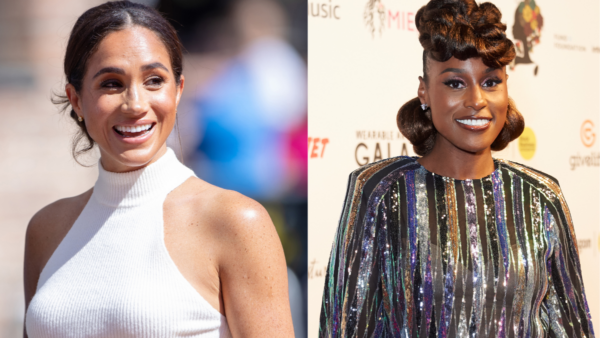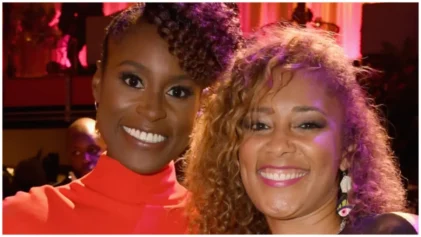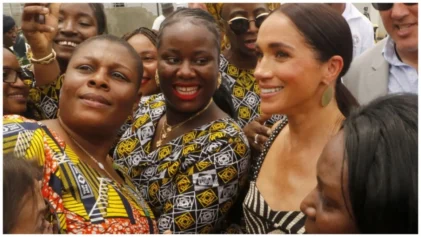Being considered “difficult” in Hollywood is one of the worst labels an entertainer could get, especially as a Black woman. It’s been seen in cases like that of comedian Mo’Nique who for a long time claimed Oprah Winfrey’s remarks about her cost the actress career opportunities. Recently Meghan Markle tackled the “angry Black woman” trope alongside Issa Rae, sending a message not to confuse being direct with being difficult.
During a recent episode of Markle’s “Archetypes” podcast, the ladies, who were joined by Ziwe, shared their experience being viewed as ill-tempered or “particular,” a term Issa admitted she viewed as a compliment. Meghan followed suit before explaining why women need to be direct.

“A, I think a high tide raises all ships, right? We’re all going to succeed, so let’s make sure it’s really great, because it’s a shared success for everybody,” the former “Suits” actress shared. Still, Markle admitted that taking the step hasn’t always been easy, and that she’d often “find myself cowering and tiptoeing into a room.”
She continued. “The thing that I find the most embarrassing [is] when you’re saying a sentence, and the intonation goes up like it’s a question? And you’re like, ‘Oh my God, stop!’ Stop whispering and tiptoeing around and just say what it is you need. You’re allowed to set a boundary, you’re allowed to be clear. It does not make you demanding, it does not make you difficult. It makes you clear.”
The “Insecure” creator elaborated on her experience and telling Markle that she never felt OK with being angry. “Absolutely not. Because I can’t lose my cool, I can’t do that, especially as a black woman, but also just even as a public figure now. Because people are looking for ways to justify their perception of you,” she explained.
The Primetime Emmy-nominated actress added, “That doesn’t mean I don’t get angry. That might mean that I will vent my frustrations to someone that I trust, get it out of my system and then go in fix mode. And I think even personality-wise, I’m always like, I don’t want to sit in my anger too long anyway because what does that do? I want to work on fixing something, but I want to be allowed to have that emotion because it’s a natural … like, it’s an emotion.”
While Markle identifies as a biracial woman whose mother is Black and father is white, she admitted that it wasn’t until she met her husband, Prince Harry, who is white, that she felt the full extent of her Black existence.
“If there’s any time in my life that it’s been more focused on my race, it’s only when I started dating my husband,” she told Grammy Award-winning singer Mariah Carey during a recording of her pod. “Then I started to understand what it was like to be treated like a Black woman. Because up until then, I had been treated like a mixed woman. And things really shifted.”


